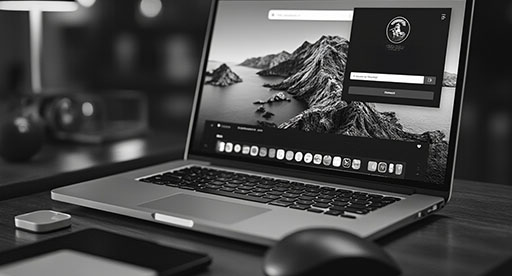Introduction: The Foundation of Online Privacy
As we increasingly rely on the internet for everything from communication to banking, our personal information is constantly being exposed to potential threats. But what exactly is online privacy, and why does it matter so much? Understanding online privacy means recognizing the importance of safeguarding our personal data from unwanted eyes, be they corporations, hackers, or even governments.
This article delves into the essence of online privacy, why it’s essential, and how tools like a private browser, secure browser, and anonymous browser can help protect your personal information from being compromised.
Section 1: Understanding Online Privacy
Online privacy refers to the ability of individuals to maintain control over their personal information and protect it from unauthorized access or misuse while browsing the internet.
When you use a standard web browser without adequate privacy settings, your data—including your browsing history, search queries, and even personal information like passwords—can be tracked and stored by websites, advertisers, and potentially malicious actors.
This lack of privacy can lead to a variety of risks, including identity theft, targeted advertising, and more severe breaches like financial fraud.
To truly understand online privacy, it’s important to recognize the role of data protection. Data protection involves strategies and tools designed to secure personal information from unauthorized access.
This is where privacy-focused tools like a private browser, secure browser, or anonymous browser come into play.
These browsers are specifically designed to offer features that enhance your privacy, such as private browsing mode, data encryption methods, and browser privacy settings.
Section 2: Why Online Privacy Matters
The importance of online privacy cannot be overstated. In an era where our lives are increasingly digital, protecting our personal information online is as vital as securing our homes.
Without adequate online privacy measures, your personal data is vulnerable to exploitation, leading to severe consequences:
- Identity Theft: One of the most significant risks of compromised online privacy is identity theft. When hackers gain access to your personal information, they can use it to commit fraud, such as opening bank accounts or making purchases in your name. Using a secure browser for online transactions or a private browser for online banking can significantly reduce this risk.
- Unwanted Surveillance: Many websites and apps track your browsing activity, often without your knowledge. This data can be used to build detailed profiles about your habits, preferences, and even your location. By using an anonymous browser or engaging in anonymous online browsing, you can prevent this intrusive tracking and maintain control over your personal information.
- Data Breaches: Large-scale data breaches are becoming increasingly common, with millions of users’ data being exposed in a single attack. Employing online security software and using a private browser with encryption can help protect your data from such breaches.
- Targeted Advertising: Advertisers frequently track your online activity to serve targeted ads. While this may seem harmless, it can feel invasive and manipulative. Using a private browser with VPN or a secure search engine can help block these trackers and keep your browsing habits private.

Section 3: Tools and Strategies for Protecting Your Online Privacy
Protecting your online privacy requires a combination of the right tools and proactive habits. Here are some strategies to enhance your online privacy:
- Use a Private Browser: A private browser is designed to protect your privacy by not storing your browsing history, cookies, or form data. Browsers like Incognito Browser or anonymous browser options offer features like private browsing mode and secure browsing, ensuring that your online activities remain confidential.
- Enable Browser Privacy Settings: Most modern browsers come with privacy settings that you can customize. These settings allow you to block cookies, prevent websites from tracking your location, and manage permissions for accessing your camera or microphone. Regularly reviewing and adjusting these browser privacy settings is crucial for maintaining your online privacy.
- Employ Data Encryption Methods: Data encryption is a process that scrambles your data, making it unreadable to anyone who doesn’t have the decryption key. This is especially important for sensitive activities like online banking or shopping. Browsers with built-in data encryption methods provide an additional layer of security.
- Use a Secure Browser for Transactions: When conducting online transactions, whether for shopping or banking, it’s essential to use a secure browser for online transactions. These browsers offer enhanced security features that protect your financial information from being intercepted or stolen.
- Leverage Anonymous Email Services: Email is a common target for cybercriminals. Using anonymous email services ensures that your email communication remains private and secure, further protecting your personal information.
- Adopt Online Anonymity Tools: Beyond browsers, there are various online anonymity tools available, such as VPNs, which mask your IP address, making it harder for websites to track your location and identity.
Section 4: Choosing the Best Private Browser
With so many options available, how do you choose the best private browser for your needs? When selecting a private browser for Android or any other platform, consider the following factors:
- Security Features: Ensure the browser offers robust security features like data encryption methods and secure browsing options.
- User Control: Look for a browser that gives you control over your browser privacy settings and allows you to easily enable private browsing mode.
- Compatibility with Other Tools: Consider whether the browser is compatible with online security software and anonymous online browsing tools you may already be using.
- Ease of Use: A private browser should be user-friendly, allowing you to easily switch to incognito mode or adjust privacy settings without hassle.

The Necessity of Online Privacy
Protecting your personal information from prying eyes is crucial, and the first step is choosing the right tools, such as a private browser, secure browser, or anonymous browser.
By understanding the importance of online privacy and taking proactive steps to safeguard your data, you can browse the internet with confidence, knowing that your personal information is secure.
Whether you’re concerned about data protection, preventing identity theft, or simply want to browse the web without being tracked, the strategies outlined in this article will help you maintain your privacy in the digital age.
Remember, online privacy starts with the choices you make today—so make sure you’re using the best tools to protect yourself online.



